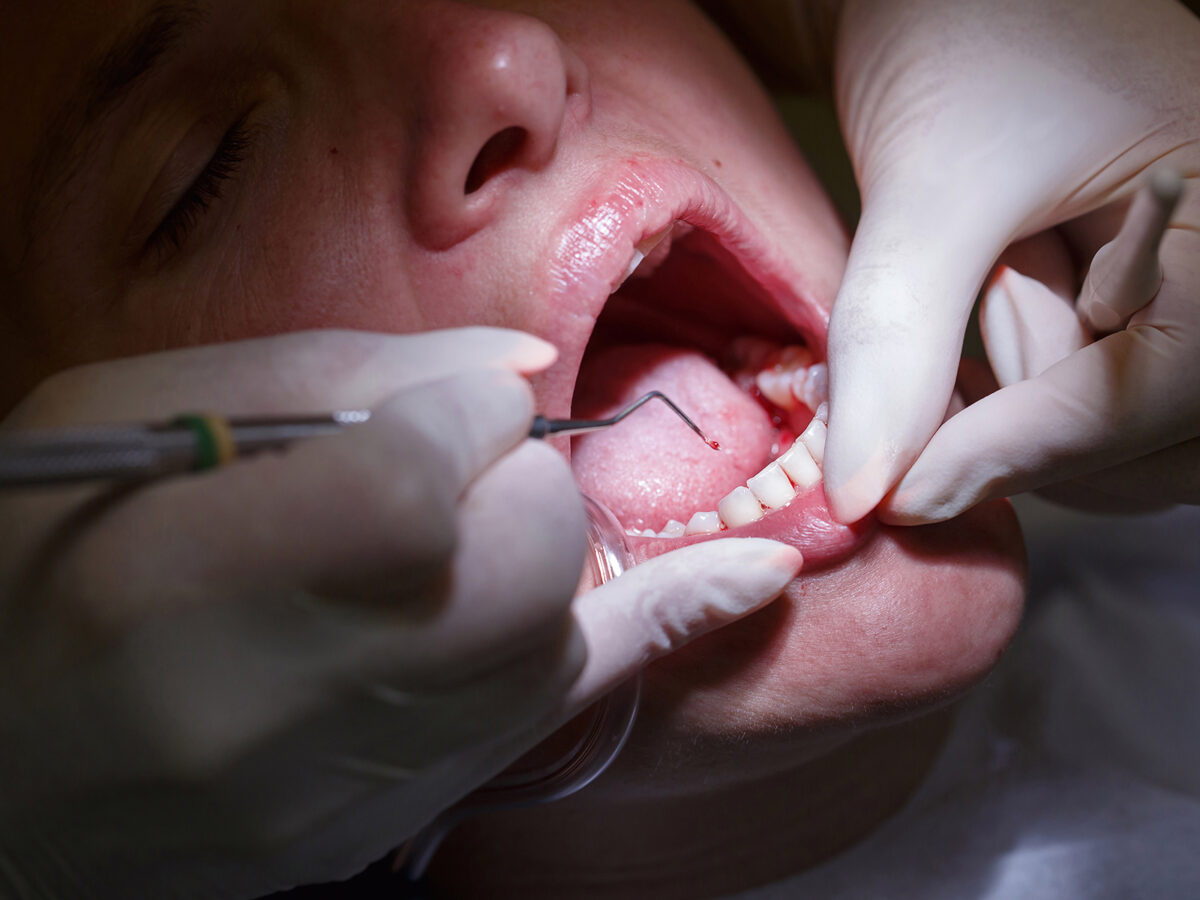Blog
Dental hygiene tips for healthy teeth & gums

What Are The Benefits of Periodontal Therapy?
Periodontal therapy is a minimally invasive approach to treating gum disease, with the goal of managing and controlling the condition without resorting to surgery. The treatment’s primary aim is to restore and maintain optimal gum health, which prevents tooth loss. Ultimately, this conservative treatment option helps combat periodontal disease and its detrimental effects.
Periodontal disease is an ongoing bacterial infection that affects the gums and bones that support teeth, leading to inflammation, gum recession, and tooth loss if not treated. Periodontal therapy can also address gingivitis, an inflammation of the gums that can progress to periodontitis if left untreated.
Every periodontal therapy treatment commences with a specialized dental cleaning performed by a professional. This is akin to the cleaning administered by your dentist during routine appointments. Its main aim is to eliminate the initial layer of plaque and tartar, or calcified plaque, that has accumulated on your teeth. Subsequently, targeted interventions are carried out to address any ongoing periodontal disease.
Periodontal treatment offers an array of options to improve oral health while being cost-effective and aesthetically pleasing. These include:
- Periodontal appliances like bite guards
- Regular maintenance cleaning appointments
- Soft tissue biopsy for diagnosis of oral lesions
- Deep cleaning of the gums to reduce inflammation and bacteria build-up at the gum line
- Bite adjustment
- Prescription antibiotics to prevent infections below the gum line.
Benefits of Periodontal Therapy
Numerous dentists are opting for periodontal therapy as the preferred method due to its multiple advantages for patients in the short and long term. A few of these benefits encompass:
Alleviating Discomfort: The primary advantage of periodontal treatment is to alleviate discomfort. Gum infections often cause inflammation and sensitivity, leading to bleeding. Infected gums also make brushing and flossing painful, making maintaining good oral hygiene and curing the disease challenging. Periodontal therapy effectively addresses your gum issues, providing relief from uncomfortable symptoms.
Combating Bad Breath: One common sign of periodontitis is unpleasant breath. This occurs due to the buildup of plaque, tartar, and bacteria beneath the gum line. Scaling and root planing are critical steps in periodontal therapy to remove these harmful substances and promote healthy gum tissue regeneration. Following treatment, patients can enjoy a naturally fresh and rejuvenated breath.
Enhancing Your Smile: The gums encircling your teeth play a crucial role in the overall appearance of your smile. Advanced periodontitis can lead to swollen and bleeding gums, causing embarrassment when smiling. However, periodontal therapy can help improve the condition of your gum line. By removing plaque and tartar, this cleaning process can effectively enhance your smile.
Prevent Gum Disease: Periodontal therapy is a proactive measure against dental problems. Left untreated, gum diseases can cause cavities, abscesses, jawbone recession, and even tooth loss. Opting for therapy can avert these severe conditions and their financial ramifications. It’s wiser to prevent than treat long-standing dental issues, which can be costly and distressing.
Maintaining Cardiovascular Health: Gum disease increases the risk of heart attack and stroke. Periodontal therapy can protect your cardiovascular health, improve your well-being, and enhance your quality of life. It’s vital to treat gum disease promptly to prevent severe health issues.
Prevent Health Complications: Oral well-being is a reflection of your overall health. Periodontal therapy enables your dentist to identify potential health complications. If left untreated, bacteria can enter your bloodstream and negatively impact vital organs like the liver and kidneys. Fortunately, gum therapy can help prevent such issues.
Following periodontal therapy, maintaining optimal oral hygiene is crucial. This includes flossing and brushing for at least two minutes after every meal and boosting your immune system with fruits and veggies to help your gums heal. If your dentist prescribes antibiotics, ensure you complete the prescription to minimize the bacteria’s medication resistance.
Periodontal therapy is a wise investment in your oral and overall health and can provide lasting benefits for years to come. To ensure the success of your treatment, maintain optimal oral hygiene, follow your dentist’s instructions, and schedule regular check-ups.


